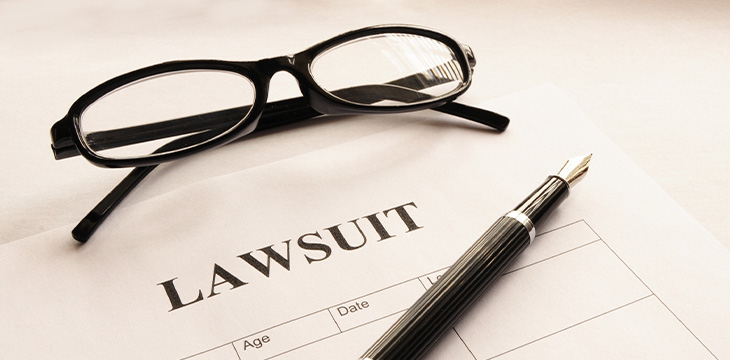|
Getting your Trinity Audio player ready...
|
In a first-of-its-kind ruling in the United Kingdom and Europe, the High Court of England and Wales has granted an order permitting the service of court proceedings as a non-fungible token (NFT).
According to a press release by Giambrone & Partners LLP, the law firm handling the case, the NFT, which will convey a “worldwide freezing injunction,” will be delivered as an airdrop to two wallets connected to the unknown defrauder of their client Fabrizio D’Aloia, an Italian engineer and the founder of online gambling joint stock company Microgame.
“This order is a noteworthy development in the area of service of court documents and a welcome example of a court embracing new technology,” the firm’s press release said.
Our firm was the first law firm in the UK and in Europe to obtain permission by a High Court Judge to serve document proceedings related to a worldwide freezing injunction against unknown persons by NFT using the blockchain technology.
Read more: https://t.co/ZOlfwEp8bc pic.twitter.com/PbHK1twkGs— Giambrone&Partners (@Giambroneintern) July 12, 2022
The court also granted a second order that is groundbreaking for cases involving digital assets. Addressed to five digital currency exchanges, namely Binance, Poloniex, gate.io, OKX (formerly OKEx), and Bitkub, the order notifies the exchanges to hold onto the client’s assets on their platform as constructive trustees.
Per the details of the case, an undisclosed amount of D’Aloia’s digital assets were stolen by unknown actors through a fraudulent clone online brokerage he invested in. These assets have been traced to the five exchanges so far. Hence the case mentions them as co-defendants with the “Persons Unknown.”
“The importance of the Court’s finding of a good arguable case of constructive trustee liability cannot be overstated. Should cryptocurrency exchanges act contrary to such orders and fail to ringfence the identifiable cryptocurrency, they risk being held liable for breach of trust,” Joanna Bailey, Associate in the Financial Services Dispute Resolution Team in London, said in the press release.
NFTs in the legal system
The case is the second time that a court has ruled for legal proceedings to be carried out on a blockchain network. A U.S. high court gave the first order in a case involving digital currency exchange LCX, which had its assets stolen by a hacker.
Many digital assets proponents have welcomed the precedence that the two cases set for using blockchain technology in the legal system. According to a Bloomberg report, the order paves the way for digital asset fraud victims to sue unknown crooks.
The legal and law enforcement system has long been seeking ways to keep up with emerging technologies. According to a recent Bank of England report, regulatory and law enforcement frameworks are highly necessary to address the systemic risks that the digital assets industry poses to the economy.
Watch: The BSV Global Blockchain Convention panel, Metaverse, NFTs & Blockchain
https://www.youtube.com/watch?v=pf2LcdDLerQ

 03-02-2026
03-02-2026 




